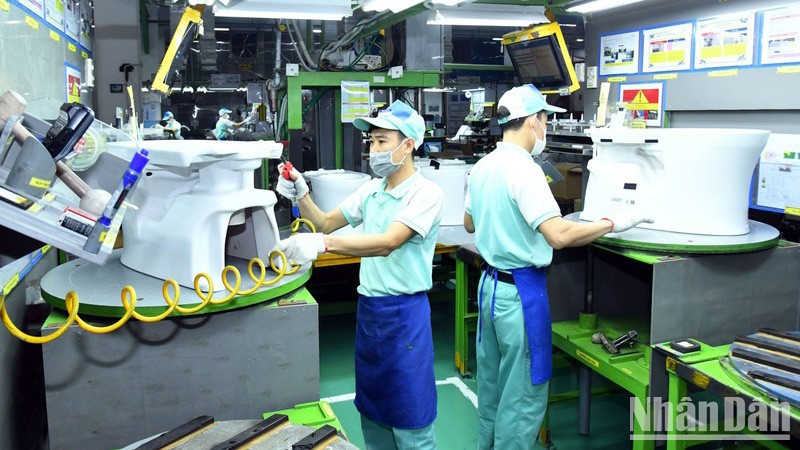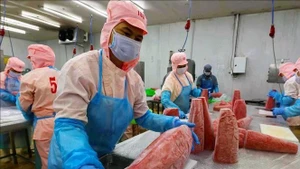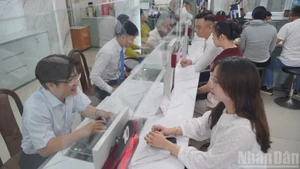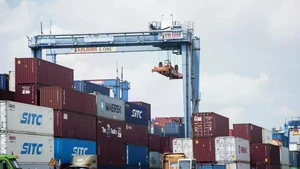The report of the General Statistics Office on the socio-economic situation in the first five months of 2023, showed that the situation of Vietnam's business sector has not improved.
Notably, the cause of difficulties for the production and business community comes not only from the difficult cycle of the world economy but also from internal problems of the economy.
Bankruptcy is still on the rise
According to the General Statistics Office, in the first five months of 2023, the whole country had 88,000 enterprises suspending operations and completing bankruptcy procedures, up 22.6% over the same period.
On average, there are 19,000 newly established enterprises returning to operation each month, but 17,600 enterprises withdrew from the market. Notably, the average registered capital of a newly established enterprise also decreased by 24.1% over the same period, to an average of 9.2 billion VND, lower than the period of the COVID-19 pandemic.
The report on the survey results of enterprises recently published by the Private Economic Development Research Board (Board IV, under the Prime Minister's Advisory Council for Administrative Procedure Reform) also showed that 82, 3% of enterprises participating in the survey expect that now until the end of the year, they will have to reduce their scale, suspend their business or stop doing business because it is too difficult.
For enterprises that are still in the market, 71.2% of enterprises are expected to reduce their labour size, with a reduction of more than 5%; 80.7% of enterprises expected to reduce revenue more with a decrease of 5%, of which the rate of revenue reduction of more than 50% was 29.4% of enterprises.
In the first five months of 2023, the whole country had 88,000 enterprises suspending operations and completing bankruptcy procedures, up 22.6% over the same period. On average, there are 19,000 newly established enterprises returning to operation each month, but 17,600 enterprises withdrew from the market.
From the above figures, Dr. Phan Duc Hieu, Standing Member of the Economic Committee of the National Assembly, said that the "health" of the business community has been eroded greatly compared to last year.
Unfortunately, in the context that the National Assembly and the Government have been implementing many policies to support economic recovery and growth, businesses still face many obstacles due to difficulties in administrative procedures and the risk of criminalisation of economic relations.
This situation showed that there are still no small barriers created, even in some cases, one procedure is abandoned and replaced by another. During this time, state management agencies should not issue new regulations that cause additional costs for production and business activities.
In the business support policy, improving the business environment is still a requirement that must be prioritised and implemented more strongly with more efficient and faster ways to support businesses. The Government has done well with these requirements during the COVID-19 epidemic and it should continue to be promoted.
Dr. Phan Duc Hieu
Creating more resources for businesses
In the survey results of Board IV, businesses pointed out four major difficulties and challenges they are facing. It was difficult because there were no orders; difficult to access loans; carry out administrative procedures and meet the provisions of the law; the risk of criminalising economic transactions.
Worryingly, business confidence in the macro economy and the industrial economy is low in this context, especially in the construction industry, micro-enterprises, small and medium-sized enterprises, enterprises in the non-state sector, and enterprises in Ho Chi Minh City.
The business community felt that the support of the local government has not met the requirements of reality, 84% of enterprises participating in the survey rated the operating efficiency and support of the local government at a low level.
According to Dr. Phan Duc Hieu, at this difficult time, it is necessary to save every opportunity for the business to survive and stand. If there is an opportunity, even a very small one, it must be taken for the business to endure and maintain its operations through this difficult period.
In the immediate future, the tax refund petition of the enterprise must be resolved soon and decisively. This problem has been raised for a long time, through many working sessions, but still no solution. Businesses cannot be short of money and have to borrow while tax refunds are outstanding for many years. This is also the content mentioned in the Report of Board IV.
According to Executive Director of Board IV Pham Thi Ngoc Thuy, there are tax refund procedures proposed by businesses that have not been removed for three years, what needs to be done now is to accelerate tax refunds under a special mechanism.
Since the end of last year, enterprises in the wood and rubber industry... have continuously called for help because they have been "detained" by thousands of billions of VND in value-added tax (VAT) refunds for a long time, while the businesses are in financial distress due to difficulties caused by the COVID-19 pandemic and fluctuations in the output market.
Board IV proposed a mechanism to allow enterprises to receive a tax refund within three months after completing the export of their orders, in combination with inspection and post-inspection measures to control risks and combat tax fraud. This mechanism will create conditions for the majority of businesses to comply with the law and still be able to fight tax fraud.
One solution recommended by the business community and experts and research organisations is to boost public investment to pump money into the economy, focusing on improving the quality of the nation's important infrastructure.
In particular, it is necessary to focus on connecting infrastructures between existing economic centres and neighbouring localities to create opportunities to attract new waves of private investment and foreign investment.
Urgent solutions at this time also include the need to reduce costs, improve the competitiveness of businesses and increase access to loans.
Accordingly, it is recommended to extend the duration of policies to support businesses that have been effective during the COVID-19 epidemic, such as a 2% reduction in VAT; researching preferential credit packages for key manufacturing industries and fields, and small and medium enterprises.
















